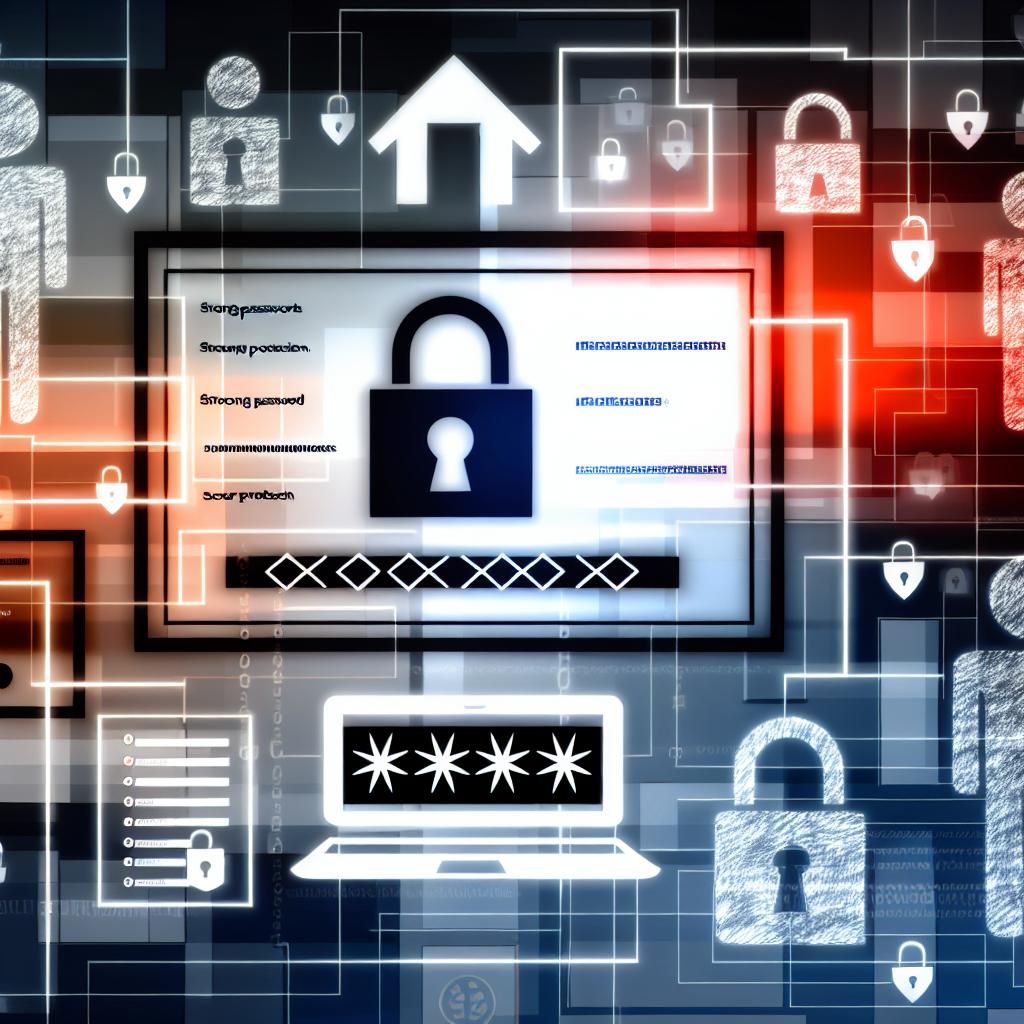How Secure is my Password - Cyber Security tips for an SME
Explore the importance of strong passwords and cyber security measures for small and medium-sized enterprises (SMEs).
Understanding Password Security
Passwords are a critical aspect of cyber security for small and medium-sized enterprises (SMEs). They act as the first line of defense against unauthorised access to sensitive information and data breaches including phishing and hacking attempts.
To ensure password security, it is important to understand the characteristics of a strong password. A complex password should be at least 8 characters long and include a combination of letters (both uppercase and lowercase), numbers, and special characters. It should be unique and not easily guessable.
Furthermore, it is essential to avoid common dictionary words or using common or random passwords or personal information, such as names, dates of birth, and addresses, as they can be easily guessed or obtained through social engineering techniques.
In addition to creating secure passwords, it is crucial to regularly update them and avoid reusing passwords across different accounts. This helps to minimise the risk of password vulnerabilities through compromise and unauthorised access.
Implementing Multi-Factor Authentication
In addition to strong passwords, SMEs should consider it critical to implement multi-factor authentication (MFA) as an additional layer of security. MFA requires users to provide multiple forms of identification before granting access to an account.
This can include something the user knows (such as a password), something the user has (such as a fingerprint or a security token), or something the user is (such as biometric data). By requiring multiple factors for authentication, MFA strengthens the security of user accounts and reduces the risk of unauthorised access.
Implementing MFA can be done through various methods, such as SMS verification codes, email verification, biometric authentication, or hardware tokens. By choosing the appropriate MFA method based on specific needs and resources, SMEs can significantly enhance overall cyber security.
Regular Password Updates
Regular password updates are crucial for maintaining strong cyber security. It is recommended to change passwords at least every 90 days or sooner if there is any suspicion of compromise.
By regularly updating passwords, SMEs can reduce the risk of unauthorised access to their systems and protect sensitive data. It is also important to ensure that the new passwords follow the guidelines for strong passwords, including length, complexity, and uniqueness.
Additionally, SMEs should implement policies that require employees to update their passwords regularly and provide guidance on creating strong and secure passwords. This can be done through regular security awareness training and reminders.
Employee Training on Password Best Practices
Educating employees on password best practices is essential for strengthening the cyber security of SMEs. Employees should be aware of the importance of creating strong passwords, avoiding password reuse, and regularly updating their passwords.
Training sessions and workshops can be conducted to provide employees with guidance on creating strong passwords, recognising phishing attempts, and understanding the potential risks associated with weak passwords.
Furthermore, employees should be educated on the importance of keeping their passwords confidential and not sharing them with others. This helps to prevent unauthorised access to sensitive information and reduces the risk of data breaches.
By investing in employee training on password best practices, SMEs can create a culture of cyber security awareness and empower their workforce to actively contribute to the protection of company data.
Password Manager Tools for Enhanced Security
Secure password manager tools can greatly enhance the security of SMEs by providing a safe and convenient way to store and manage passwords.
Password managers generate strong, unique passwords for each account and securely store them in an encrypted database. Users only need to remember one master password to access their password vault.
These tools also offer features such as auto-fill, which automatically enters the stored passwords when needed, and synchronization across multiple devices, ensuring passwords are readily available and easily accessible.
By utilising secure password manager tools, SMEs can eliminate the need for employees to remember multiple complex passwords, reducing the risk of weak or reused passwords. This ultimately enhances the overall cyber security of the organisation.
Read our 'I have been hacked' blog article here for more useful information.

Leave A Reply